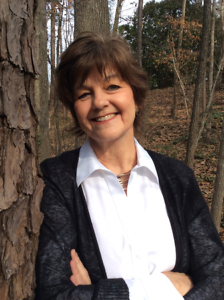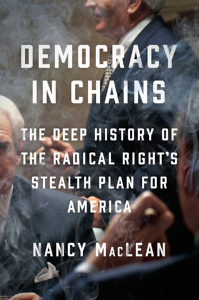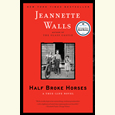Rights and the Right
Nancy MacLean talks with Chapter 16 about “the deep history of the Radical Right’s stealth plan for America”
In Democracy in Chains, Nancy MacLean tells “the increasingly sinister story of dark money and radical right politics,” as she puts it. The story centers on an unlikely figure, the Nobel Prize-winning economist James McGill Buchanan. This gripping narrative history has stirred controversy while describing a substantial, influential, right-wing movement funded by Charles Koch, a movement with the objective of subverting American democratic processes.

Nancy MacLean is the William H. Chafe Professor of History and Public Policy at Duke University. Her previous books include Freedom Is Not Enough: The Opening of the American Workplace and the award-winning Behind the Mask of Chivalry: The Making of the Second Ku Klux Klan. She answered questions from Chapter 16 via email.
Chapter 16: Why is James McGill Buchanan so important?
Nancy MacLean: It was James Buchanan who taught Charles Koch that for capitalism to thrive, democracy must be enchained. Buchanan studied economics at the University of Chicago and belonged to the same pro-market milieu as F.A. Hayek, Milton Friedman, and Ludwig von Mises, but he used his training to analyze public life, creating a field called public- choice economics. And he supplied what no one else had: an operational strategy to vanquish the model of government they had been criticizing for decades—and prevent it from being recreated.
Buchanan was a very smart man, a native Tennessean, in fact, who went on to become the first winner of the Nobel Prize in Economics from the U.S. South. But his life’s work was shaped by one singular event—the Supreme Court’s Brown v. Board of Education decision. He arrived in Virginia in 1956, just as that state was goading the white South to fight the court’s ruling, a ruling he saw not through the lens of equal protection of the law for all citizens but rather as yet another wave in a rising tide of unwarranted and illegitimate federal interference in the affairs of the states.
At stake, to him, was nothing short of an attack on the sanctity of private-property rights, with Northern liberals telling Southern elites how to spend their money and behave correctly. Given an institute to run on the campus of the University of Virginia, Buchanan promised to devote his career to understanding how the other side had become so powerful and, ultimately, to figuring out a strategy for breaking down the kind of federal government that citizen activism had built. That is why I titled the book “democracy in chains.”
Chapter 16: The book’s prologue opens with John C. Calhoun, the nineteenth-century South’s fierce defender of slavery, and describes resistance to the Supreme Court’s Brown v. Board of Education decision in 1954. What role does race play in the intellectual history of the “radical right”?
MacLean: I should clarify here that the book is not about all wings of the extreme right, but about the billionaire-backed radical right: a libertarian rightwing movement that now sails under the Republican flag yet goes back to the 1950s in both parties. President Eisenhower called them “stupid” and fashioned his approach—calling it modern Republicanism—as an antidote to them. Goldwater was their first presidential candidate. He bombed. Reagan, they believed, was going to enact their agenda. He didn’t. But beginning in the new century, they became a force to be reckoned with. What had changed? The discovery by their chief funder, Charles Koch, of the approach developed by James McGill Buchanan for how to take apart the liberal state.
And Buchanan came up with that distinctive approach in the crucible of the civil-rights era, as the most oligarchic state elite in the South faced the loss of its accustomed power. Interestingly, he almost never wrote explicitly about racial matters, but he did identify as a proud “country boy,” and his center gave aid to Virginia’s reactionaries on class and race matters.
His heirs at George Mason University, his last home and now the academic base camp of Koch operations, have noted that Buchanan’s political economy has “the same purpose and effect” as that of John C. Calhoun, the antebellum South Carolina U.S. Senator who, until Buchanan, was America’s most original theorist of how to constrict democracy so as to safeguard the wealth and power of an elite economic minority (in Calhoun’s case, large slaveholders). In that Buchanan arrived in Virginia just as Calhoun’s ideas were being excavated to fight the implementation of Brown, the kinship was more than a coincidence. The economist’s vision of the ideal constitution owes much to Calhoun, whose ideas horrified James Madison, among others.
 Chapter 16: Why do you describe this political agenda as a “stealth plan for America”?
Chapter 16: Why do you describe this political agenda as a “stealth plan for America”?
MacLean: An MIT-trained engineer, Charles Koch in the 1960s began to read political-economic theory based on the notion that free-rein capitalism (what others might call Dickensian capitalism) would justly reward the smart and hardworking and rightly punish those who failed to take full responsibility for themselves or had lesser ability. He believes that the market is the wisest and fairest form of governance, and one that, after a bitter era of adjustment, will produce untold prosperity, even peace. But after several failures, Koch came to realize that if the majority of Americans ever truly understood the full implications of his vision of the good society and were let in on what was in store for them, they would never support it. Indeed, they would actively oppose it.
So Koch went in search of an operational strategy—what he has called a “technology”—of revolution that could get around this hurdle. He hunted for thirty years until he found that technology in Buchanan’s thought. From Buchanan, Koch learned that for the agenda to succeed, it must change not simply “who rules,” but “the rules” of governance. He learned that this could be done in incremental steps, which Koch called “interrelated plays”: many distinct yet mutually reinforcing changes.
Koch’s team used Buchanan’s ideas to devise a roadmap for a radical transformation that could be carried out largely below the radar of the people, yet legally. The plan was (and is) to act on so many ostensibly separate fronts at once that those outside the cause would not realize the revolution underway until it was too late to undo it. Examples include laws to destroy unions without admitting their true purpose, suppressing the votes of those most likely to support active government, radical gerrymandering to misrepresent the remaining electorate, using privatization (including of Social Security and Medicare) to alter power relations—and, to lock it all in, Buchanan’s ultimate recommendation: a “constitutional revolution.”
Chapter 16: What is the impact of this movement on the contemporary political scene?
MacLean: The impact has been enormous, on the states and on the nation as a whole. Most of us are still speaking and acting as if there is a Republican Party, a party with its own traditions and internal decision-making and accountability to its voters. But what’s so alarming in this story is that, in a real sense, there is no more GOP, not like a U.S. major party—and certainly not like the one my father voted for most of his life until his death in 2000.
Using a strategy guided by Buchanan’s ideas, the party has been turned by the billionaire-funded libertarian right into a delivery vehicle for the donors’ agenda. The Koch network’s leaders boast of their “accountability play”: donor-funded challenges from the right, now so common that we have a new verb: “to be primaried.” Even those old-fashioned Republicans who managed to survive—think John McCain and Orrin Hatch—have made enormous concessions to stave off challenges from a libertarian right they once criticized. That’s even more true out in the states.
In effect, by realigning the incentives and penalties elected officials face, this cause has turned the GOP into a kind of Leninist party of the right, one in which no dissent is allowed after the course has been set. Which is why John Boehner finally quit: he understood that this Republican Party hates compromise. It considers horse trading to be selling out. It wants to dramatically diminish the power of the federal government in order to remove the reins from capitalists—as a Cato Institute publication once said of Buchanan’s goal, “to protect capitalism from government.” And the conduct of these new-style Republican leaders has created a national crisis whose depth we have yet to fully plumb.
A case in point: the election of Donald Trump to the presidency can be seen as the strange fruit of the promotion of Buchanan’s ideas to attack the legitimacy of government as we have known it and the application of his thought to radically alter how it works. An early critic of Buchanan warned that his theory was a menace because it could undermine the “norm of public spiritedness” on which decent governance depends. We have seen the truth of that prediction.
Chapter 16: How have libertarian reviewers criticized the book? How do you respond?
MacLean: It’s difficult to summarize because some have been posting almost nonstop. One seasoned tracker of the Koch network’s operations told me he’s never seen its people so frenzied. But three patterns have emerged. First, most of the critics have attacked the work without having read it. Second, they failed to disclose their financial indebtedness to the cause whose history my book explores: each of the most dogged critics has benefited from grants from the Koch Foundation or related groups, yet very few have acknowledged that, which is a breach of standard reviewing and academic ethical norms.
Third, and most illuminating, for all the thousands of words they have written, the critics still fail to engage the central message of the book: leading libertarian thinkers and funders concluded they could never win over the majority to their agenda. Therefore, they decided to achieve their utopia by attempting to radically alter the rules in their own favor.
I fully understand why Koch-allied figures would want to keep people from learning this, and that is why I am doing everything I can to alert my fellow citizens to the history I discovered in Buchanan’s private papers and its urgent import for our country in this moment.

Aram Goudsouzian chairs the history department at the University of Memphis. His most recent book is Down to the Crossroads: Civil Rights, Black Power, and the Meredith March Against Fear.





